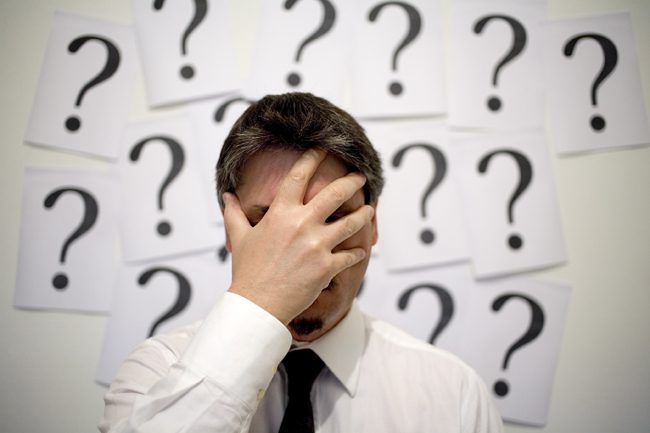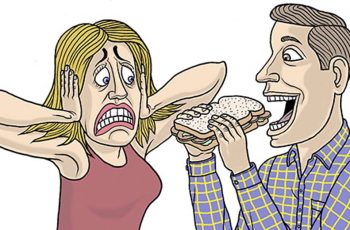We’ve all been there. You’re standing in front of the ice cream case, trying to decide between chocolate and vanilla. Or you can’t decide which pair of shoes to buy. Or whether or not to move to a new city. Indecision is frustrating, and it can feel like you’re never going to be able to make up your mind.
But the good news is that there are reasons why you might be feeling indecisive, and once you understand the root cause of your indecision, you can start to work on making decisions with more confidence. So if you’re ready to learn why you can’t seem to make up your mind, read on for nine possible causes of indecision and how you can overcome them to make better decisions.
What does it mean to be indecisive?
Indecisiveness can mean difficulty in deciding. It is not possible to choose between the two choices, and it’s impossible to act. Indecisiveness puts you somewhere between tearing, stuck, trapped, and paralyzed. You are overwhelmed.
If your decision is not made immediately, you cannot make any decisions. You may try everything you can to escape the decision-making driving position. Indecisive behavior is common. Those who are struggling with the task may find you wishy-washy.

How does being indecisive affect your life?
The inability to decide can be very detrimental to our lives. All of these things affect my life, my career, and my friends. The underlying reason for being indecisive was inaction. It had a severe negative impact on how we worked together. It’ll be costing you money.
Indecisive affects your emotional health. You may feel forced to make decisions and have someone else do the same thing, so you can choose to stay indifferent to your choice but never be happy. You might be feeling anxious, overwhelmed, or having an anxiety attack. Indecisive decisions sometimes cause depression.

9 Causes of Indecision
Fear of Making The Wrong Choice
One of the a few reasons for indecision is fear of picking the wrong choice, regretting your decision later on, and fear of what other people will think of your decision which somehow leads to self-doubt. Uncertainty can feel like a way to protect yourself from making a mistake, but it’s important to remember that there is no such thing as a right decision. You’ll always have some degree of uncertainty when deciding, but that doesn’t mean you should let fear hold you back.
Overthinking Your Options
Another common cause of indecision is when you over analyze your options. When you have too many options to choose from, you lost sight of the bigger picture, and it can be not easy to narrow things down and make a good decision. And when you’re stuck in the cycle of overthinking, it can feel like you’ll never be able to make the right choice. If you are overthinking your options, try focusing on the most important factors in your decision and letting go of the rest.
Perfectionism
If you tend to be a perfectionist, indecision might be something you struggle with regularly. Perfectionists often have difficulty making decisions because they want everything to be perfect—and since nothing in life is ever truly excellent, they end up feeling stuck and unable to move forward. If this sounds like you, try permitting yourself to make a poor decision—it might just help you get unstuck.
Lack Of Information
Sometimes, indecision can be caused by a lack of information. If you don’t have all the facts about a situation, it cannot be easy to decide with confidence. In cases like this, doing additional research or talking to someone with more experience can help you feel more prepared to make a decision.
Pressure From Others
Indecision can also be caused by pressure from others—whether it’s pressure from family members or friends or pressure from society in general. If you feel you have to justify your choices to others or meet certain expectations, it can be harder to trust your gut and go with what feels suitable. In situations like this, it’s important to remember that, ultimately, the only opinion that matters is yours—so don’t let anyone else control your decisions.
Emotional Attachment
It can be challenging to make decisions when we’re emotionally attached to specific outcomes. If you find yourself in this situation, try to take a step back and look at things objectively. Consider all your options without letting emotions cloud your judgment. This can be difficult, but it’s important to remember that sometimes logic must win over emotion. Learn to overcome self-doubt because it creates a wall while taking any decision.
Parental Influence
Their parents may have influenced someone indecisive. In some cases, parents may make all of the decisions for their children, leaving them little room to practice making choices on their own.
As a result, these individuals may become uncertain and unsure of themselves when faced with choices. In other cases, parents may constantly be changing their minds or second-guessing their decisions, leading their children to believe it is normal.
You Have Aboulomania
Someone indecisive may have a condition called aboulomania. This is a mental disorder that causes a person to have the inability to make decisions. When faced with two or more choices, the person with aboulomania will find it very difficult to choose one option over another.
This can lead to significant problems in their life, as they may be unable to make simple decisions such as what to eat for breakfast or what clothes to wear.
You Are A People Pleaser
A people pleaser is someone who wants to please everyone around them and make them happy. As a result, they might have a hard time saying no to people or making decisions that could upset someone. While being considerate of others is great, it’s also important to be true to yourself.
If you’re constantly trying to please everyone, you might not be living the life you want to live. So instead, focus on making decisions that are right for you and will make you happy. Your future self will be much better off in the long run if you do.

10 Methods to Improve Your Decision Making Skills
Make decisions for yourself
One of the most important things you can do is to start making decisions for yourself. This may seem daunting at first, but it’s quite simple. Start by taking some time to think about what you want and what you need.
Once you have a clear idea of this, it will be much easier to make decisions that are right for you. Learn to trust your gut instinct. We often know what we want or need before we realize it ourselves. If something feels right, chances are it probably is.
Have more confidence
One way to build self confidence is to clarify your values and what is important to you. When you know what you stand for, making important decisions that align with those values becomes easier.
Another way to gain confidence is to educate yourself on the topic or issue at hand. The more you know, the easier it will be to trust your instincts and make a decision. Lastly, practice making decisions, even if they are small choices. The more experience you have, the more confident you will become in your ability to make big decisions.
Let things go
If you tend to be indecisive, one of the best things you can do is learn to let things go. What this means is that you need to be willing to accept that not everything will always be perfect. There will be times when you make a decision, and it doesn’t turn out exactly the way you wanted it to. That’s OK.
The important thing is that you learn from your mistakes and keep moving forward. Letting go of the need for perfectionism will help you to become more decisive and confident in your decisions. In the end, this will lead to better results overall.
Find one person that can act as a sounding board
One way to overcome indecisiveness is to find a sounding board that will listen to your ideas and helps you clarify your thinking. This person does not need to be an expert in the field you are deciding about, but they should be someone you trust and feel comfortable talking to.
Once you have found someone, take the time to explain your thinking process and the options you are considering. Then, ask for their honest feedback. Be open to hearing what they say, even if it is not what you want to hear. Their input can help you to make a more informed decision.
Talk it out
If you find yourself stuck in a pattern of indecision, it may help to talk it out with someone you trust. This could be a friend, family member, or therapist. Talking about your dilemma can help you clarify your thoughts and decide. It can also be helpful to get another person’s perspective on the situation. They may be able to offer advice or see things that you have not considered.
Narrow it down
This involves considering a limited number of options and then choosing the one that feels best. For example, rather than deciding between two different restaurants, the indecisive person might narrow it down to two cuisines and then choose the restaurant that specializes in their favorite type of food.
Outline the pros and cons
Someone who’s not a decisive person may find that creating pros and cons list is an effective way to overcome these mind games. This process can help to clarify one’s thoughts and ideas by logically organizing them. Additionally, it can be helpful to consider the impact of each option on different areas of one’s life.
For instance, if someone is trying to decide whether or not to move to a new city, they might list the pros and cons of doing so. On the pro side, they might note that a new job offer would be available. On the con side, they might note that there would be less support from family and friends. Weighing the pros and cons can help someone make a more informed decision.
Flip a coin
Flipping a coin can be an effective way to overcome indecisiveness. By assigning each option to one side of the coin, the person can let chance decide which option to choose. This can reduce the pressure of making a decision and help prevent endless deliberation.
Of course, there are some situations where flipping a coin is not the best solution. For example, if a decision has serious consequences or if there is a strong preference for one option over the other, it may be better to use another. Another example is when you are finding the right life partner, a soulmate, or the one. But for everyday choices, flipping a coin can be an easy and effective way to break indecisiveness.
Avoid questioning your final decision
Once you have made up your mind, stick with it. This doesn’t mean that you should never change your mind; if new information arises or you realize that you made the wrong choice, by all means, adjust course.
However, if you find yourself constantly second-guessing your decisions, taking a more decisive approach may be helpful.
Recognize and celebrate your decisions
Every time you make a decision, no matter how big or small, take a moment to congratulate yourself. This will help to reinforce the idea that you are capable of making decisions, and it will also help to boost your confidence. In addition, try to avoid overthinking things.
Sometimes the best course of action is to go with your gut instinct. Trust yourself, and you’ll be surprised at how much easier it becomes to make decisions.

Final Thoughts
Making decisions can be difficult, but it is essential to remember that you can do so. If you struggle with indecision, try using some of the abovementioned methods. And don’t forget to celebrate your decisions, no matter how big or small they may be.
Frequently Asked Questions
What causes people to be indecisive?
Many people hesitate when faced with a choice because they worry about making the wrong decision or even what others may think. You could be afraid of failure and its consequences; perfectionism might hold you back from taking action–no one wants to fail!
Is being indecisive a trauma response?
Indecision can be a symptom of mental health conditions, such as ADHD and depression. So if you experience indecisiveness in making decisions that cause stress or anxiety, it’s not alone because these are common problems that many people deal with too.
Is there a mental disorder for being indecisive?
The symptoms of aboulomania are similar to those seen in depression. The difference lies mainly in how patients cope with their illness and what they think about it.
A mental disorder characterized by extreme indecisiveness, this condition usually occurs when people experience anxiety or stress, which leads them to despair over any decision-making process
What mental illness causes poor decision-making?
The decision-making process can become impaired for people with mental disorders such as schizophrenia. They may not understand the relationship between their actions and outcomes, causing them to keep selecting “A” even if they know it’s no longer a valuable or preferable option to B.




